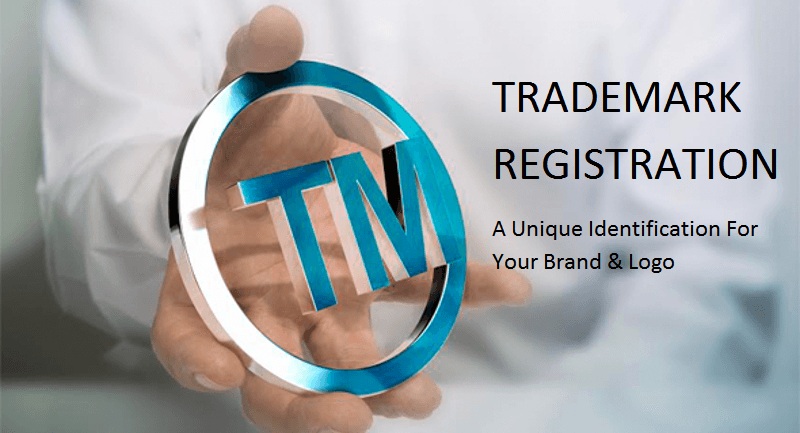

Description
A brand is much more than a name, logo, or catchphrase in the dynamic business world; it is a priceless tool that represents a company's standing, dependability, and market presence. As companies spend a lot of money developing their identities, it is necessary to make sure that their self is safeguarded. As a decisive legal security, trademarks protect a brand's worth while providing companies with the resources they require to succeed in a cutthroat industry. Businesses may increase their market value, protect their distinctive brand, and uphold consumer trust by using Trade Mark Registration
A legally recognized symbol, design, or expression that identifies and sets one company's products or services apart from another is called a trademark. A name, logo, slogan, music, color, or even a mix of these might be used. Although preventing market misunderstanding is a Trade Mark Registration main goal, its influence extends well beyond identification. By establishing exclusivity, fostering customer trust, and providing legal protection against infringement, trademarks play a vital role in maintaining a brand's value.
Providing exclusivity is one of the most important ways Trade Mark Registration maintain a brand's value. The owner of a registered trademark is granted the only authority to use it in connection with the particular products or services it stands for. In a congested market where companies frequently vie for the same audience, this uniqueness is essential. A registered trademark shields the brand from dilution by guaranteeing that no other company may lawfully use a similar name or emblem. Without this safeguard, a brand's uniqueness can be stolen or imitated, confusing customers and causing it to lose market share. Globally known marques of goods, such as "Coca-Cola" and "Nike," for example, depend on their legal protections to keep their uniqueness and stop rivals from abusing their goodwill.

Trademarks also play a significant role in building and maintaining consumer trust. Customers often associate trademarks with quality, consistency, and reliability. When consumers see a Trademark, they know what to expect from the brand. This recognition fosters loyalty and reinforces the connection between the brand and its audience. For example, the golden arches of McDonald’s evoke immediate associations with fast food, consistency, and a global standard of service. Such associations would not be possible without the strong legal protection of trademarks, which confirms that only the rightful owner can use the mark. This trust directly translates into sustained customer loyalty and repeat business, adding immense value to the brand.
Another critical aspect of trademarks is their role as intangible assets. A well-protected trademark is an asset that can significantly increase the financial value of a business. Trademarks can be licensed, franchised, or sold, providing additional revenue streams for businesses. Investors and stakeholders view registered trademarks as indicators of a company’s stability and professionalism, making them more likely to invest. In mergers and acquisitions, the value of trademarks can often surpass the value of tangible assets, demonstrating their importance in preserving a brand’s financial worth.
In addition to these business advantages, Trade Mark Registration serve as a robust legal recourse against infringement. In the absence of a registered trademark, businesses may struggle to protect their uniqueness from misuse or counterfeiting. Counterfeiting, in particular, is a significant challenge that affects industries ranging from fashion to pharmaceuticals. Counterfeit goods not only erode market share but also tarnish a brand’s reputation if they fail to meet the expected quality standards. Trademarks empower businesses to take legal action against such infringers, confirming that their brand value remains intact. For instance, Apple’s consistent efforts to protect its trademarks, such as “iPhone” and “App Store,” have allowed it to combat imitators and maintain its position as a global technology leader.
Furthermore, trademarks facilitate global expansion and recognition. Through international agreements like the Madrid Protocol, businesses can register their trademarks in multiple countries, gaining worldwide protection. This global recognition is important for businesses looking to expand their operations beyond domestic markets. A strong trademark portfolio confirms that the brand’s individuality and reputation are protected in international jurisdictions, paving the way for seamless market entry and growth. Brands like Starbucks and Adidas have successfully leveraged their trademarks to establish a consistent global presence, making them recognizable and trustworthy worldwide.
Trademarks are also indispensable in creating a competitive edge. In a market saturated with similar products and services, a distinctive trademark allows a brand to stand out. This uniqueness is a powerful tool for capturing consumer attention and establishing a strong market presence. A trademark becomes synonymous with the brand’s characteristics, making it easier for customers to remember and prefer it over competitors. For startups and small businesses, registering a trademark early can lay the foundation for future success, confirming that their brand remains unique and protected as they grow.
Maintaining a trademark requires active management. Once registered, trademarks must be renewed periodically to confirm continued protection. Businesses must also monitor the market for potential infringement and take prompt action when necessary. Vigilance is key to preserving the value of a trademark, as neglect can lead to its cancellation or dilution. Companies like Google and Coca-Cola invest heavily in trademark monitoring and enforcement, make certain that their brands remain protected and valuable.
Despite the indisputable advantages, many companies undervalue the significance of registering a trademark. Others undervalue the dangers of not protecting their brand identification, while others see it as an expensive or pointless procedure. However, when weighed against the possible losses from infringement, counterfeiting, or brand erosion, the expense of trademark registration is negligible. Registering a trademark is a calculated investment in the long-term worth of the business, not just a legal need.
In Final Opinion, trademarks are a vital legal shield that preserves the value of a brand by providing exclusivity, building consumer trust, protecting against Trademark Infringement, and enhancing financial worth. They empower businesses to safeguard their personality, foster loyalty, and create a competitive edge. In a world where brand reputation is a critical driver of success, trademarks offer the assurance that a business’s hard-earned goodwill remains intact. By investing in trademark registration and management, companies can secure their brand’s legacy and guarantee its continued success in the ever-changing marketplace. Protecting a brand through trademarks is not just a legal necessity—it is the foundation for preserving its value and securing its future.
Reviews
To write a review, you must login first.
Similar Items